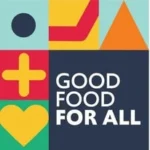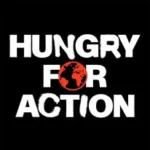“A world without hunger isn’t a utopia, it’s a choice.”
– António Guterres, Secretary General of the United Nations
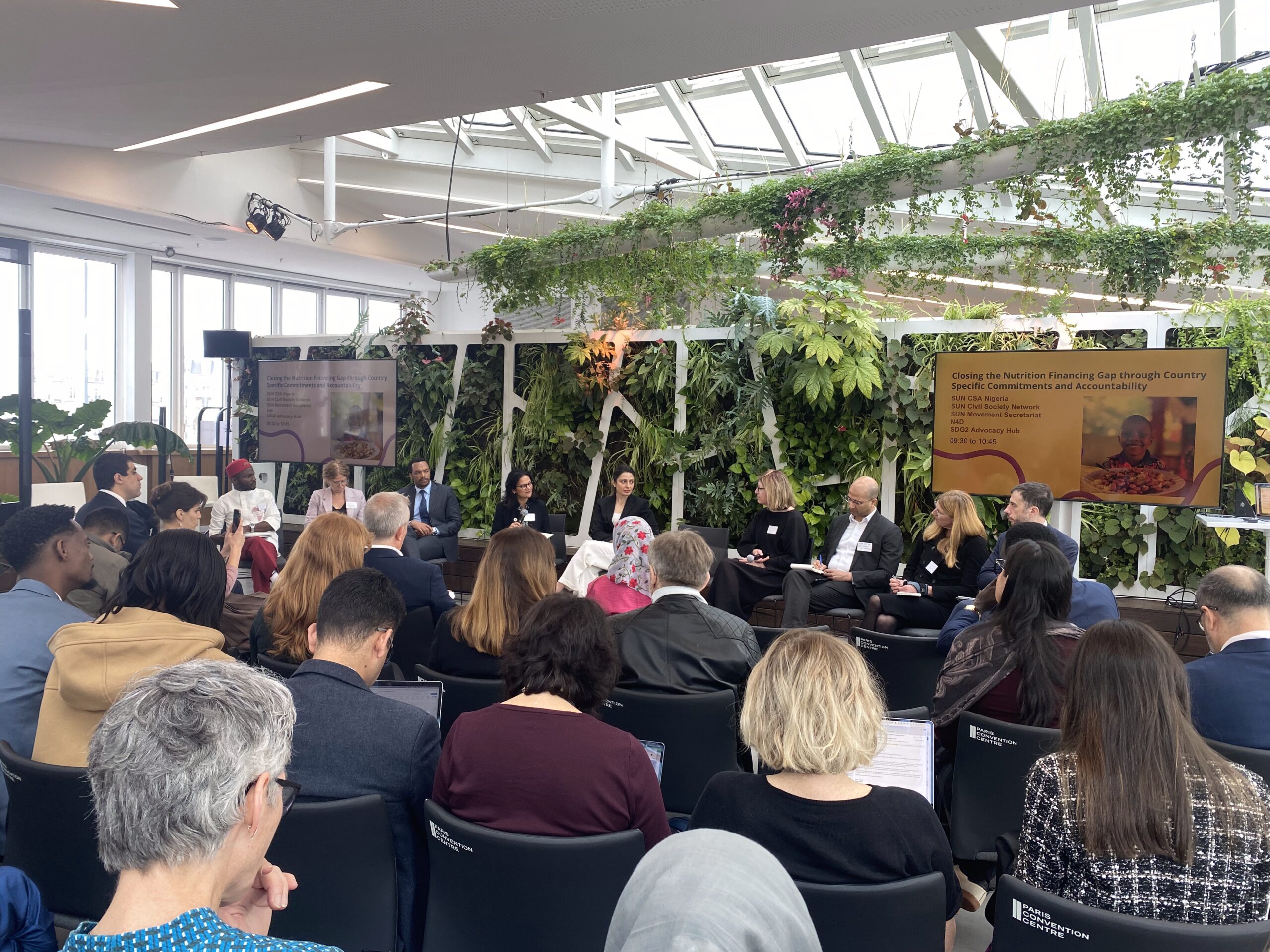
Last week, Ministers and delegations from 106 countries, along with civil society advocates, research institutions, development banks, companies and philanthropies gathered in Paris for the third Nutrition for Growth Summit hosted by the Government of France. Amidst an estimated 44% cut to nutrition aid, diverse nutrition stakeholders showed their strong support and commitment to nutrition as a global development imperative.
This comes at a vital moment when nutrition aid cuts may leave as many as 2.3 million wasted children without life-saving treatment and result in 369,000 additional child deaths from severe acute malnutrition each year. Speaking to new analysis by the Standing Together for Nutrition Consortium, the Head of the Scaling Up Nutrition (SUN) Civil Society Network Alexandra Newlands reminded delegates that “this is a political decision – not a crisis of resources.”
Top Takeaways from N4G:
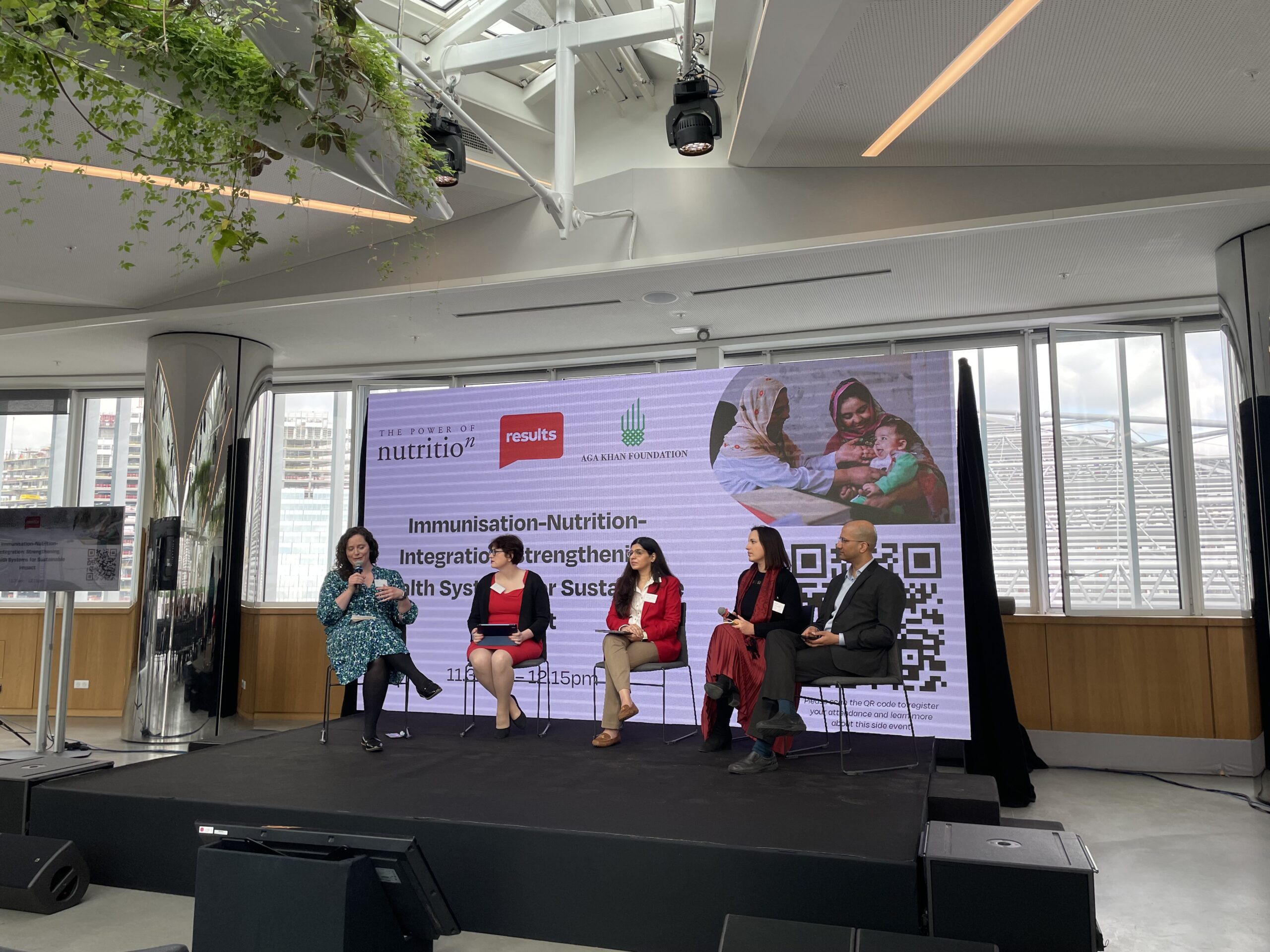
1. Integration and convergence
Speeches and dialogues across the five days of N4G activities consistently called for the greater integration of nutrition objectives in policies, programmes and financing across all relevant sectors. At the CSO Pavilion, a side event organized by the Action Against Hunger, the Power of Nutrition, Results UK and others made the case for community-driven actions and positioned immunisation-nutrition-integration as a means to reduce healthcare costs, optimise supply chains and service provision systems, and better assist hard-to-reach communities in fragile contexts. Karima Al-Hada’a, Planning and Liaison Specialist for the SUN Yemen Secretariat, urged stakeholders to go one step further and ensure the convergence of nutrition services in target communities.
The Nutrition Dialogues Synthesis Report that captures the voices of 10,000 people from 54 countries identified a common need for integrated nutrition solutions delivered through strengthened social protection, water and sanitation, health and food systems to reach communities. A panel at the Village of Solutions featured youth advocates Finian Ali and Shanerisse Tamondong who led Nutrition Dialogues in Nigeria and the Philippines, respectively. They called for greater dialogue and consultation with communities in the design and implementation of successful integrations.
These activities built momentum toward the launch of the Global Compact for Nutrition Integration, a collective effort to mobilize, sustain, and implement nutrition integration commitments from a broad range of stakeholders. Launched by the Children’s Investment Fund and the UK’s Foreign and Commonwealth Development Office, the compact invites governments, multilateral organisations, donors, investors, foundations, civil society and research organisations to share lessons and collaborate on the implementation of multi-sectoral interventions to increase the scale and quality of integration as well as the more efficient and effective use of existing resources for nutrition.
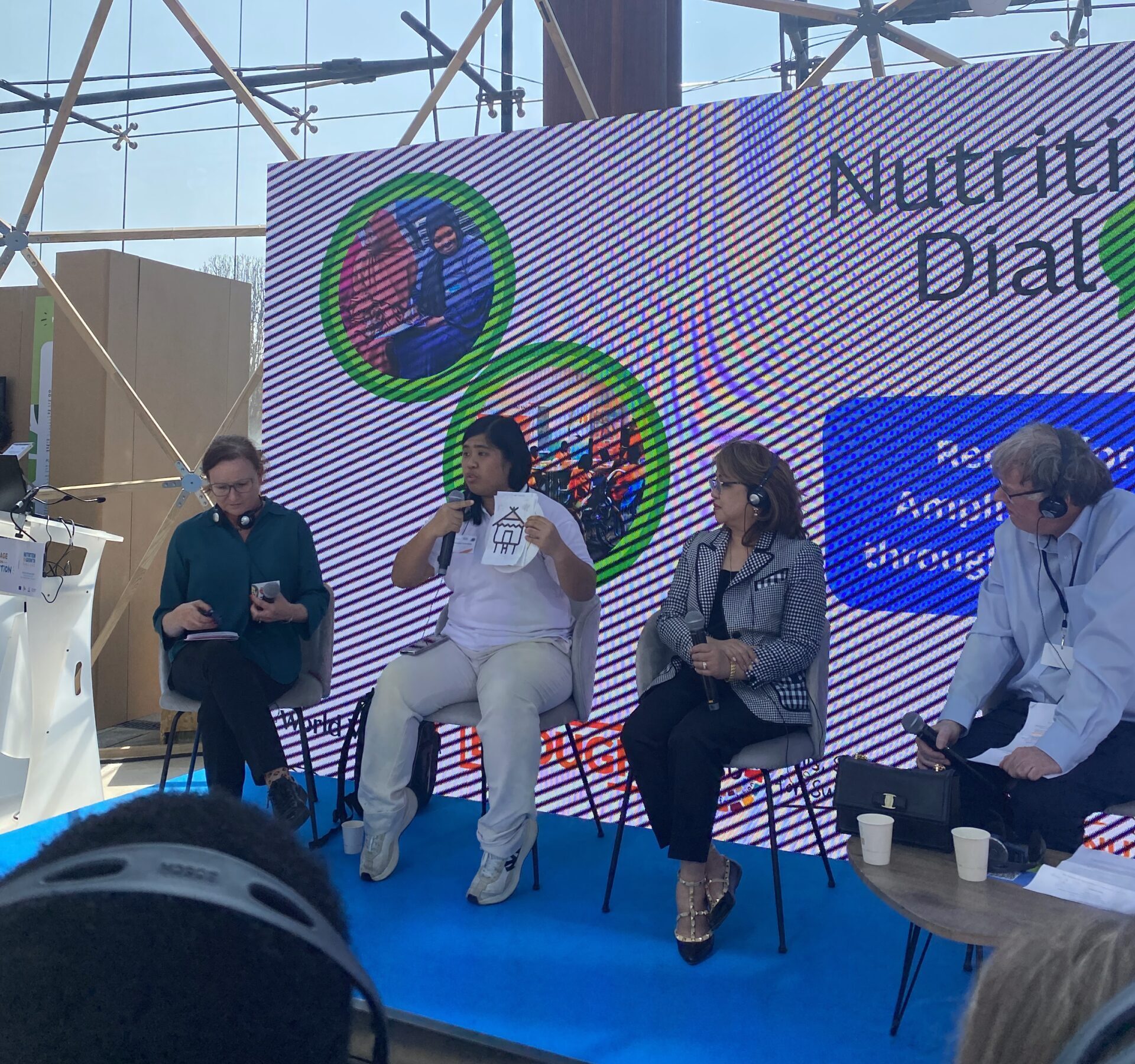
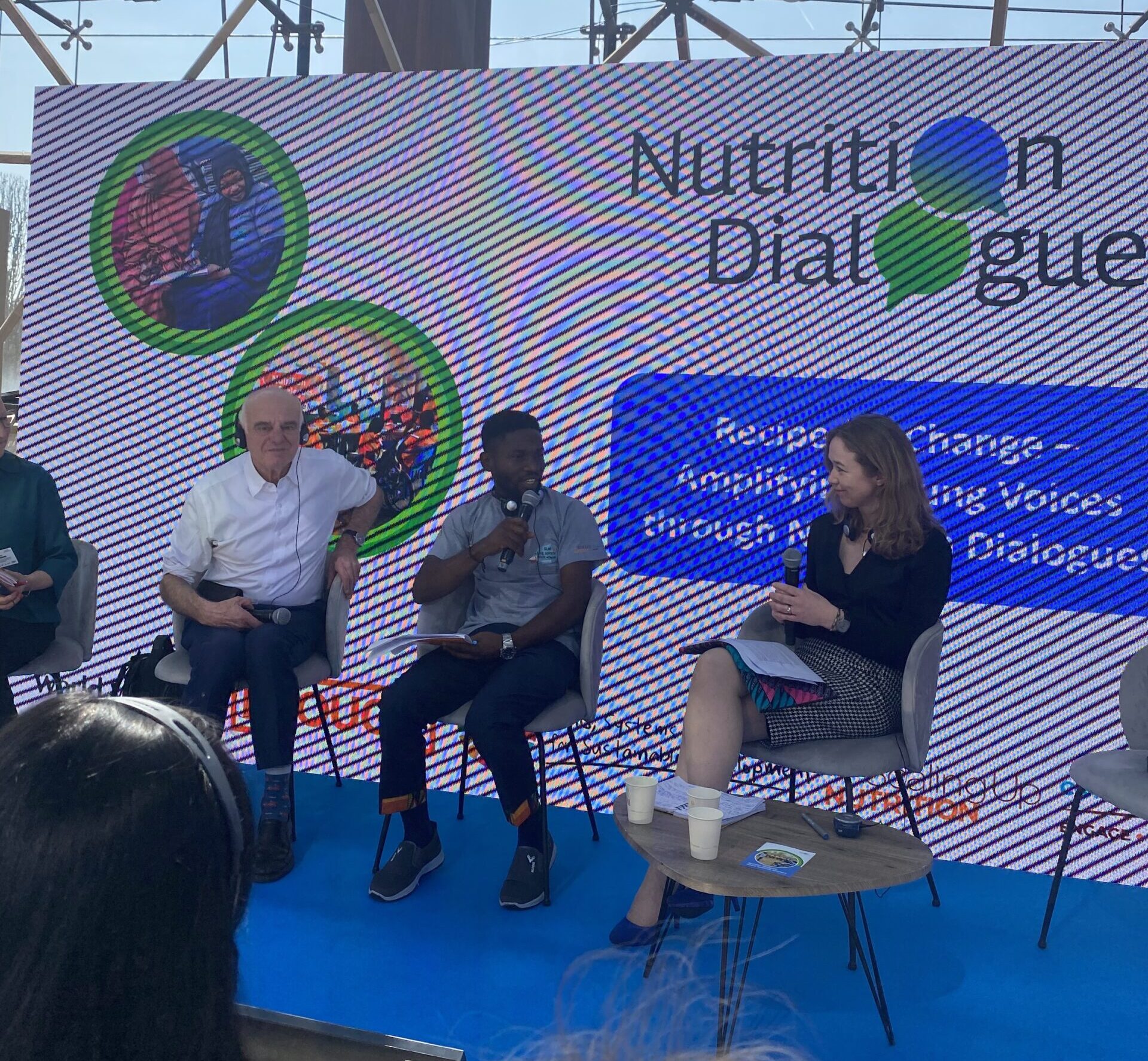
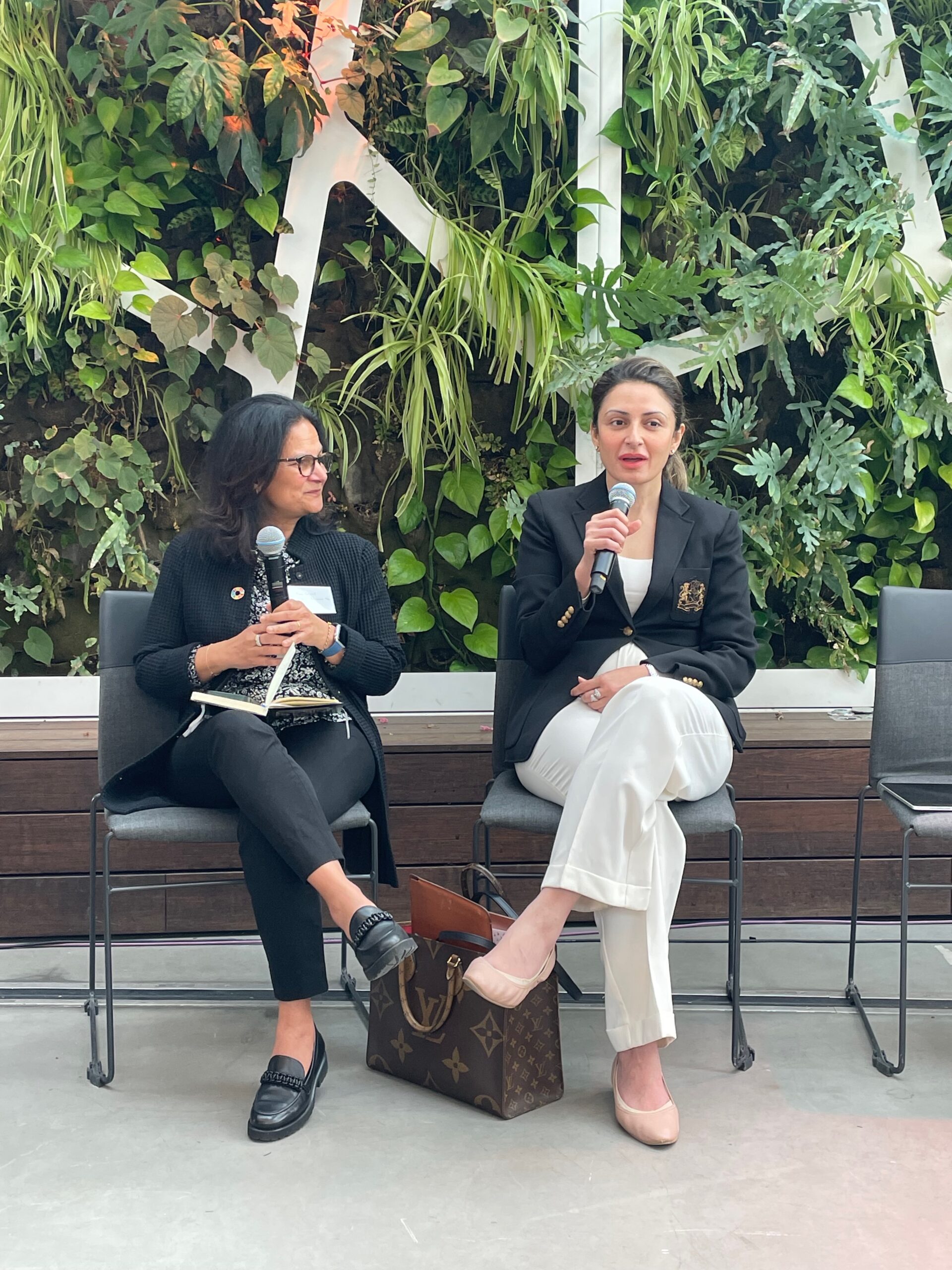
2. Shifting to a country-led approach
The leadership and resilience of countries was evident across N4G with ministers, policymakers and parliamentarians sharing insights, learnings and advice to support their country counterparts. One such discussion was luckily captured on a daily episode of N4D’s podcast ‘The Politics of Ending Malnutrition’, featuring Ethiopia’s State Minister H.E Dr Dereje Duguma and Nadia Rehman, Member for Food Security & Climate Change at the Planning Commission of Pakistan. This rich interchange heard H.E. Duguma’s learnings from the government-led Seqota Declaration that reduced stunting rates from 75% to 25% in areas of Ethiopia as to inform Pakistan’s new pilot convergence programme. The Seqota Declaration bolstered a whole of government approach behind one plan, one budget and one reporting mechanism. “We would like to develop a similar consensus and political commitment beyond a programme or project – and replicate what you have done,” remarked Nadia.
This evidently strong need for more country leadership was complemented by calls from countries themselves, civil society advocates and others for a shift in power from the global to the country level. The nutrition community as a whole must seek greater alignment with country level priorities, strategies and needs to drive impact in the communities most affected.
“Partners have to align seriously to the strategies and priorities of the government. Fragmented and small projects will not take us anywhere. Now our focus is to bring together all partners and resources with the Seqota Declaration of 15 years that aims to decrease stunting. We have to bring resources, stakeholders and partners into a platform where we invest in nutrition.”
– H.E. Dr Dereje Duguma, State Minister, Ministry of Health, Ethiopia
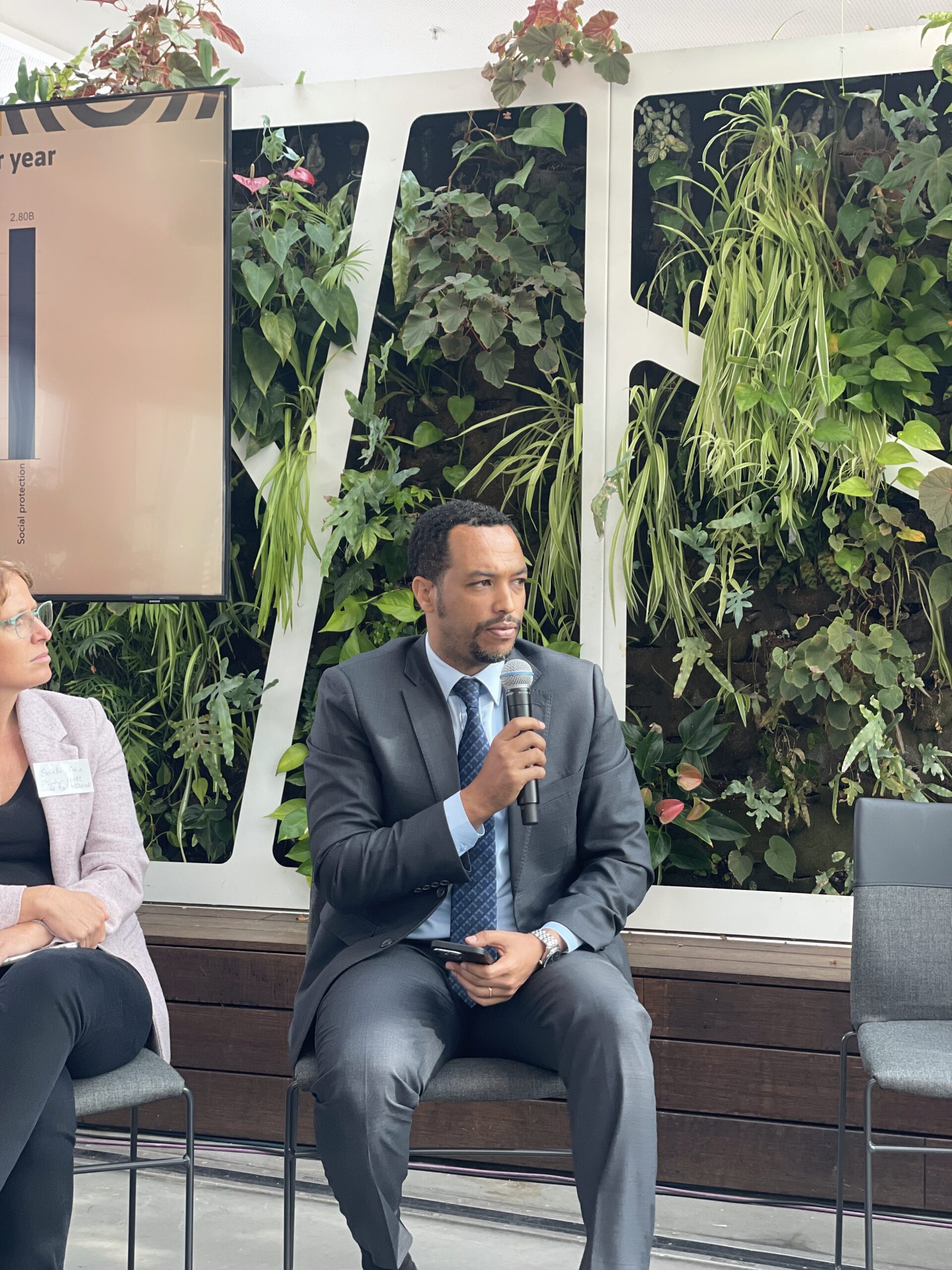
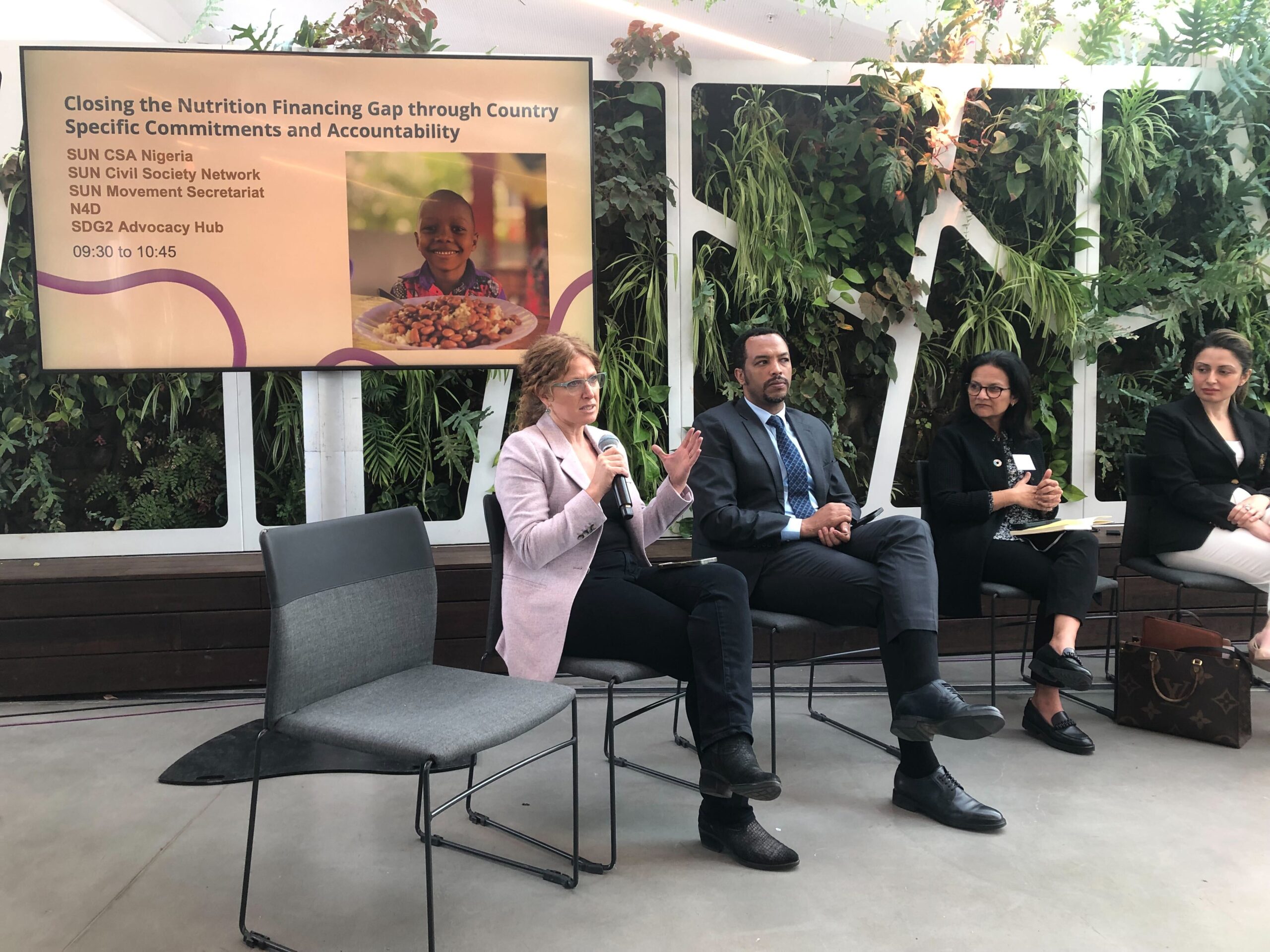
3. Sustainable financing for nutrition
In light of declining overseas development assistance (ODA) for nutrition and recent aid cuts, the Paris N4G Summit as a critical pledging event came at a difficult moment. WFP and UNICEF have issued warnings of disruptions to food and nutrition services without urgent investment. Financing discussions in Paris touched on nutrition’s overreliance on ODA and the need to diversify financing through innovative financing approaches (e.g. repurposing agriculture subsidies) and policy measures (e.g. integration). Carin Smaller, Executive Director of the Shamba Centre for Food and Climate, presented the Hesat 2030 report that points to a strategic mix of blended finance that would see $1 of public money mobilising $4 of private financing. “The nutrition community has got to be better in blending public and private sources of money to get finance flowing to nutrition,” said Carin.
Financing conversations also emphasized the importance of aligning financing with country nutrition plans and investing in capacity development at the national and local levels for greater impact. These issues were also highlighted in a new report by World Vision International and the SDG2 Advocacy Hub with insights and recommendations for achieving long-term, predictable, accountable and coherent investment in nutrition.
4. N4G Pledges and Commitments
That said, the Government of France announced that USD $27.55 billion was pledged for nutrition, narrowly overtaking the previous N4G Summit in Japan. Find below a listing of the main pledges:
-
The African Development Bank committed $9.5 billion up to 2030.
-
The World Bank announced $5 billion over five years for nutrition-related initiatives.
-
Team Europe (EU and member states) committed €6.5 billion between 2024-2029, which includes: Ireland pledged €250 million between 2026-2029 to tackle malnutrition and improve nutritional intake globally; the EU committed €3.4 billion until 2027 to end malnutrition; France announced an investment of €750 million for AFD food and nutrition programmes up to 2030
-
A group of philanthropies collectively pledged more than $2 billion to address malnutrition, including: $750 million over four years by the Gates Foundation to improve mothers’ and children’s access to nutrition and fortification programmes; the Bezos Family Foundation announced $500 million to the Child Nutrition Fund; the Rockefeller Foundation committed $100 million to support countries to expand school meals and reach 100 million children globally.
-
Nepal pledged more than $1 billion
-
World Vision announced an $1 billion investment in child nutrition programmes
-
El Salvador committed more than $500 million for malnutrition
-
Madagascar pledged to spend 5% of its national budget on nutrition
-
Save the Children committed $663 million to end child malnutrition
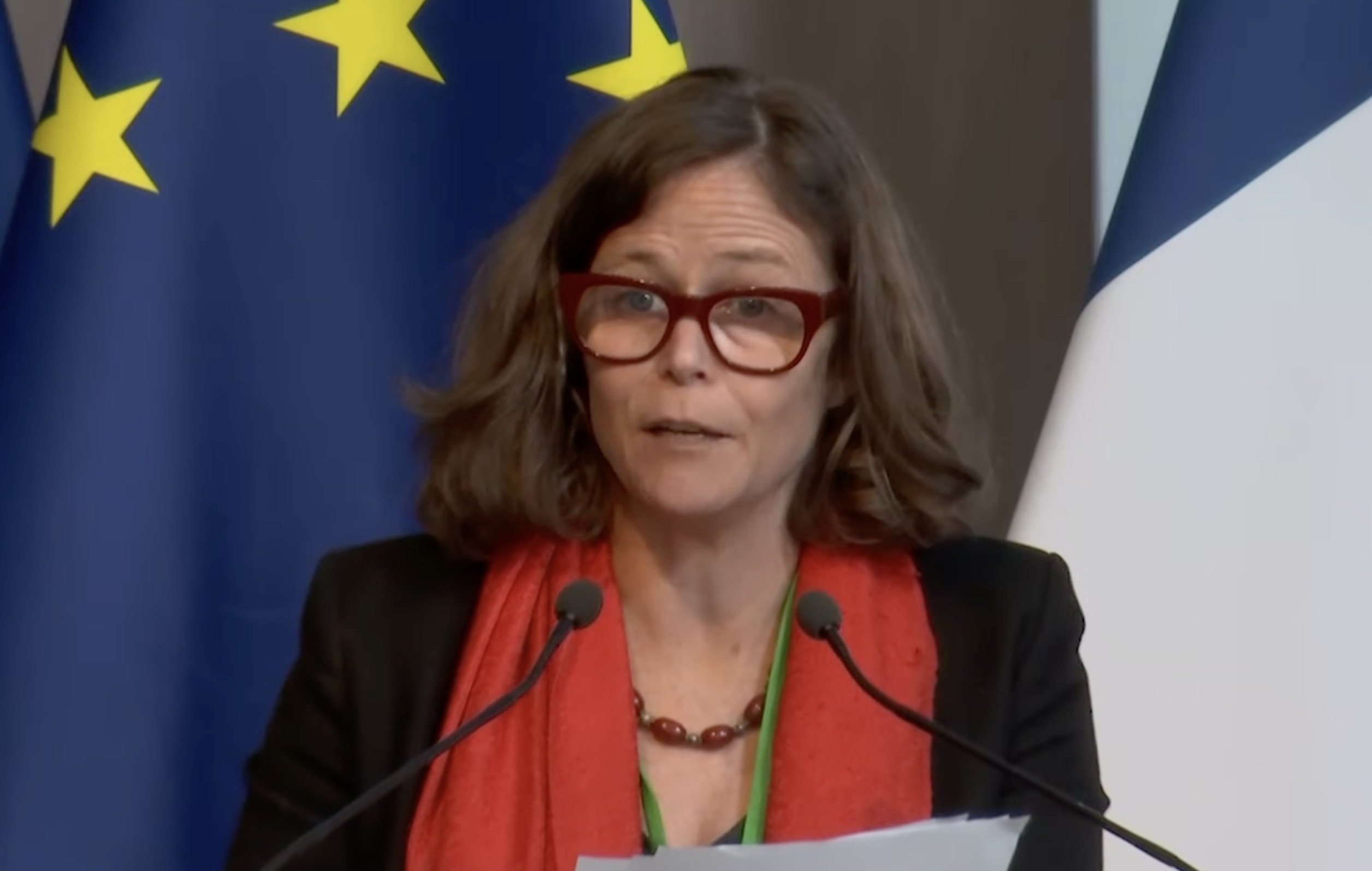
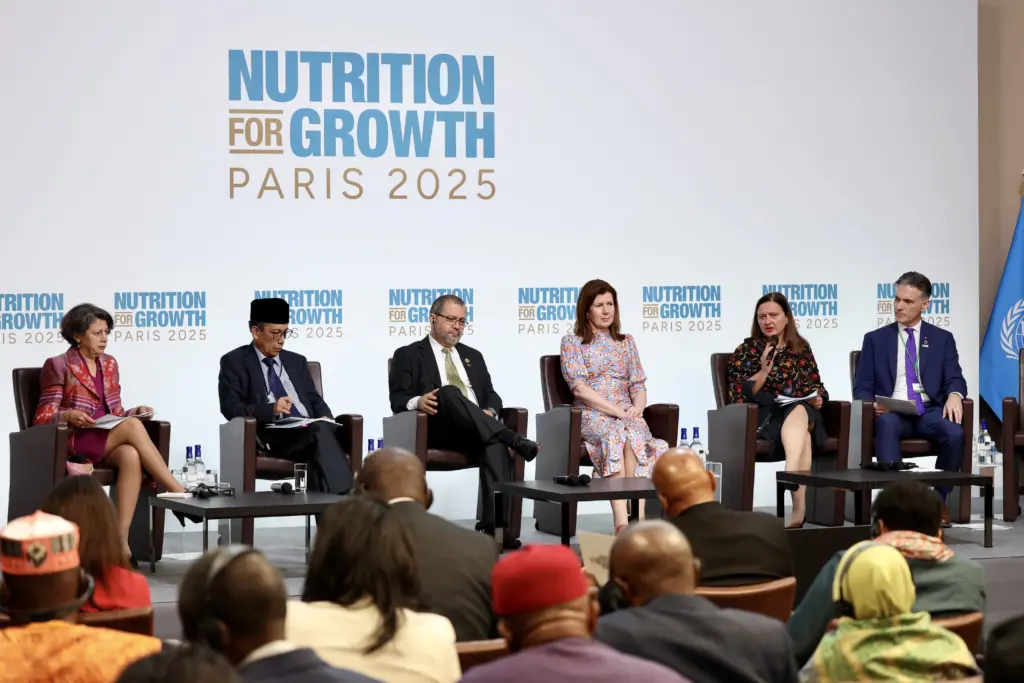
The realisation and delivery of these commitments must align with the calls above for sustainable and long-term financing that strengthens country systems and drives impact on national nutrition plans.
5. Other nutrition bright spots
On the eve of the main summit, 50 distress signals were silently lit in front of the Eiffel Tower by athletes, chefs, musicians and civil society representatives who raised the alarm on malnutrition. The 50 distress signals symbolised malnutrition as the underlying cause of 50% of child deaths each year.
For the first time, gender was a thematic focus at N4G. This is due to a growing recognition of not only women and girls being disproportionately affected by malnutrition but also an acknowledgement of their vital role in our health, food and water systems that are foundational for good nutrition.
The Paris Declaration on Business & Nutrition 2030 published a shared vision to improve the ‘nutrition economy’ with a 2030 roadmap that calls for a realignment of business incentives and investment to transform food systems for improved nutrition outcomes.

Crédit: Sébastien Franca
The importance of data, research and innovations for a well nourished world was showcased at the Village of Solutions with exhibitions on nutrition programmes in the Sahel using AI to identify malnutrition drivers and research initiatives leveraging food system diversification to tackle malnutrition in eight African countries. The Scientific Conference invited researchers from across the globe to present the latest evidence on the role of social protection and food systems in improving nutrition outcomes. The launch of tool Tech to Table presents new ways to leverage technological solutions across social protection, health, education and food systems.
Recognising chefs’ unique position between farm and fork, Chefs’ Manifesto food champion Christian Abégan joined a youth-led event with Global Citizen, elevating indigenous food systems as a vital pathway in the delivery of healthy diets. A launch event of Sight and Life’s special report on fermentation welcomed Chef Hugo Chez to the Chefs’ Manifesto, and offered a delicious menu showcasing how this ancient, time-tested technique can help tackle modern nutrition and health challenges.
“We have crises and in some of the lands, we have war. But in some countries and villages, you can find ways to elevate local, indigenous ingredients which are more nutritious. As chefs, we are at the end of the chain. We have a special role to organise, to teach, to help people to have a better life. It’s an awakening for ourselves and for our communities, to help others around us.” – Chef Christian Abégan, Chefs’ Manifesto food champion & WFP Chef Advocate
A resolution to extend the UN Decade of Action on Nutrition to 2030 was adopted in New York. Put forward by the governments of France and Brazil, the resolution had a whopping 139 co-sponsors and builds political momentum at the highest levels with a commitment from Member States for sustained policies, programmes and investments to achieve a world free of malnutrition.
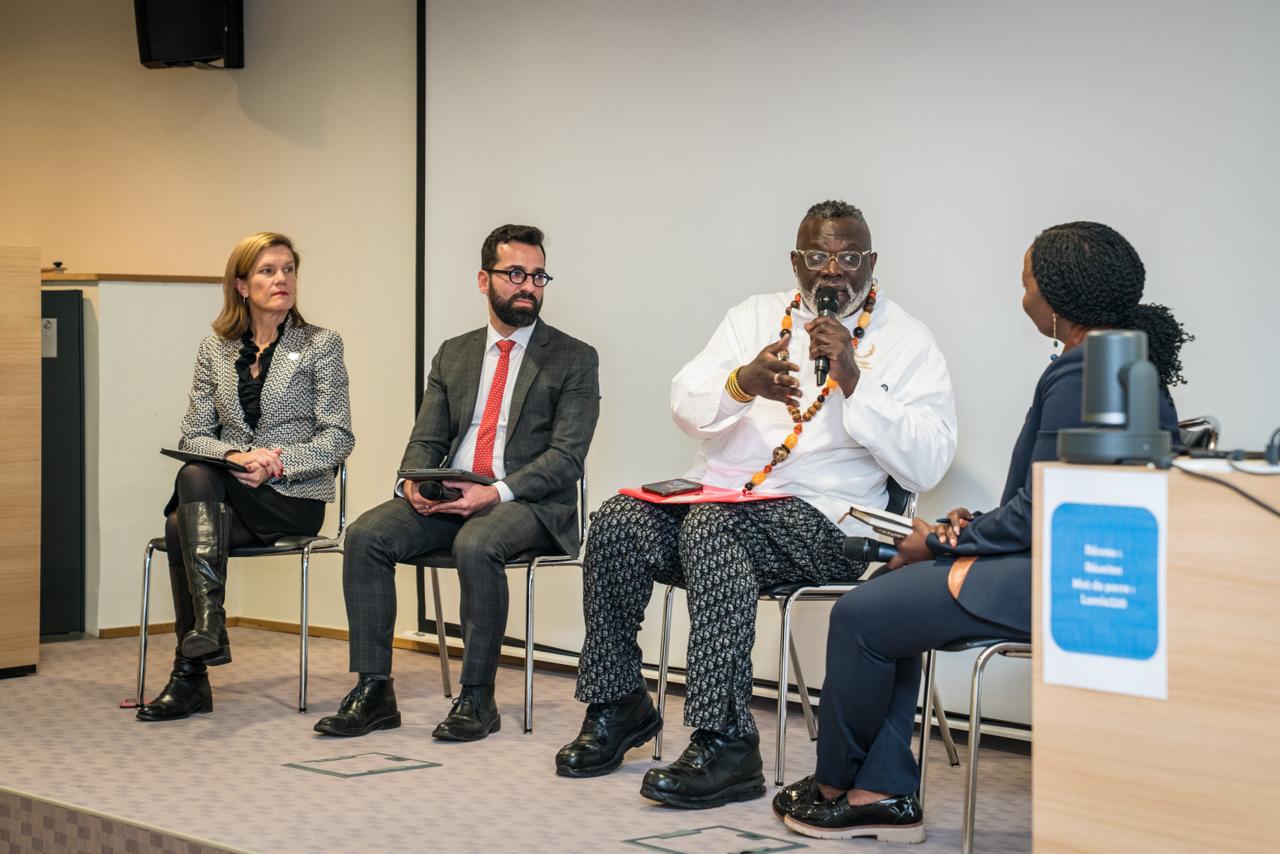
Credit: WFP/Evelyn Fey
“No one in this room went to bed hungry last night. And yet, for millions of people in our world, that is their daily reality.” – Dr Tedros Adhanom Ghebreyesus, Director General of the WHO
The road from Paris to…
The Paris Nutrition for Growth Summit, a much awaited global event in early 2025, was marked by deeper political polarisation and increasing threats to multilateralism. The success of the Paris Summit shows continued leadership, collaboration and prioritisation of nutrition. Greater pledges from philanthropies and the private sector that filled the gap left by historic nutrition champions – namely the absent U.S. Government and the lack of a financial commitment by the U.K. – is an important step towards a more diversified nutrition landscape.
These bold commitments must be met with strong plans for accountability. Policy and financial commitments must be realised, implemented, monitored and evaluated to ensure real impact. Building on this strong legacy, a nutrition champion must step up and offer to host the next N4G Summit. Accountability must be more than a buzzword.
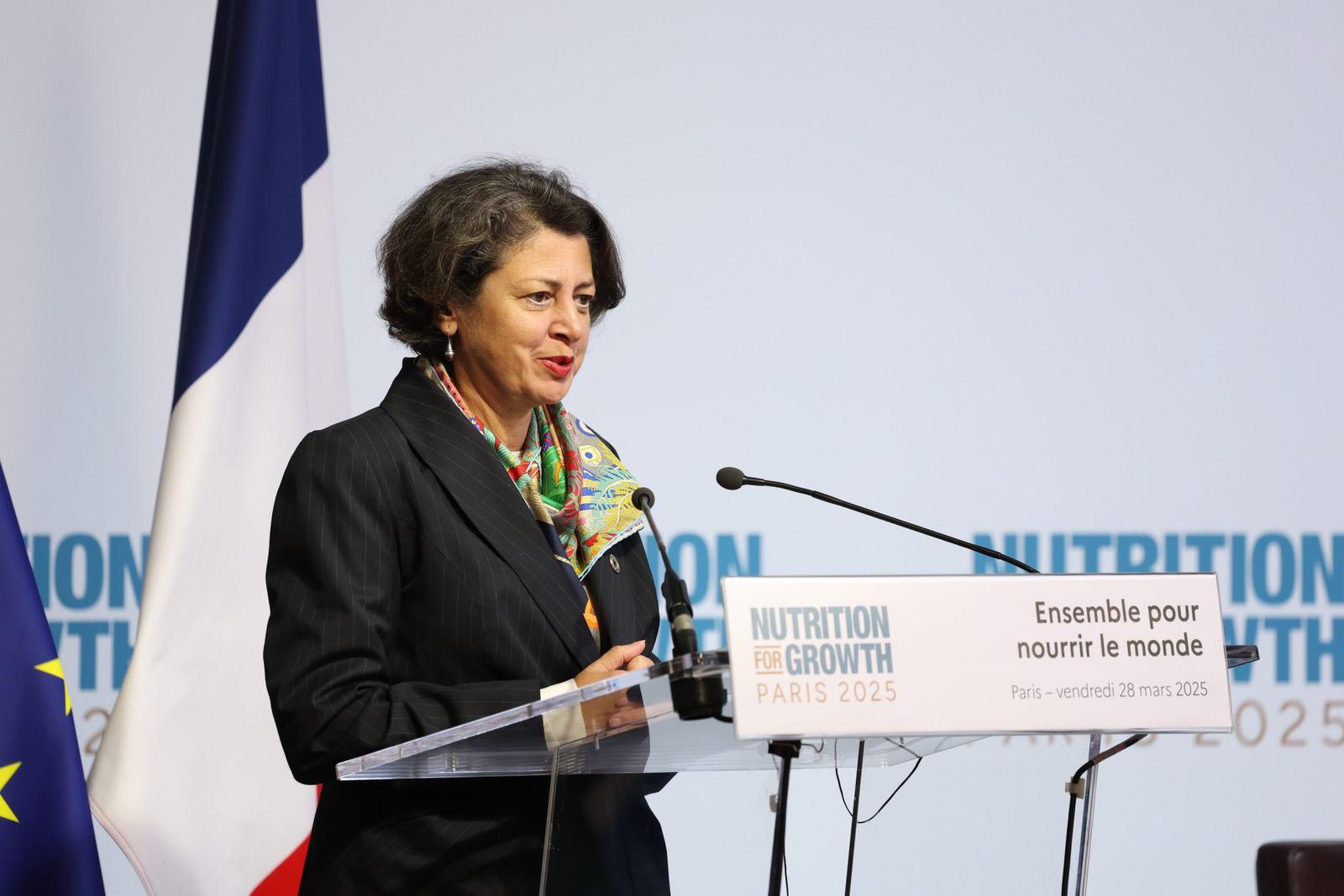
In her closing remarks, the UN Assistant Secretary-General and Scaling Up Nutrition (SUN) Movement Coordinator Afshan Khan pointed to upcoming moments to take forward the nutrition agenda, to strengthen integration and boost multi-stakeholder collaboration amid economic constraints: the Financing for Development Summit and UNFSS+4 in July, the SUN Global Gathering and COP30 in November. France’s Minister Mohamed-Soilihi added a 2026 moment to this list: a nutrition milestone moment hosted by the French presidency of G7.
In the words of King Letsie III, we are hopeful that Paris reinvigorated nutrition champions of all shapes and sizes to together “meet the moment we are in and hold the line on nutrition.”


